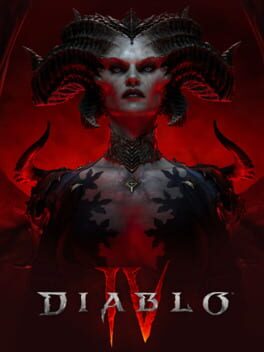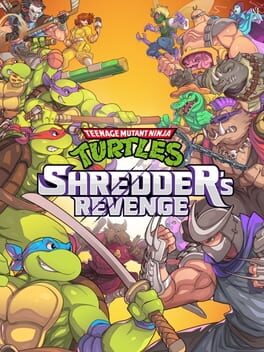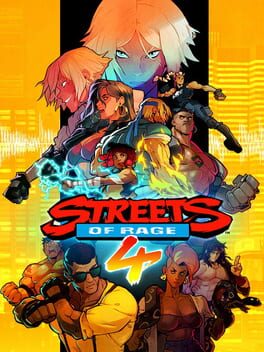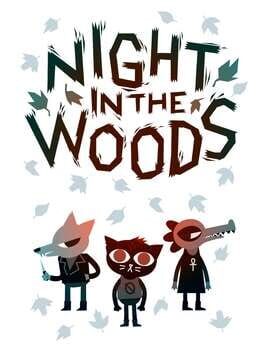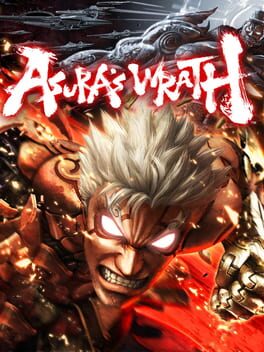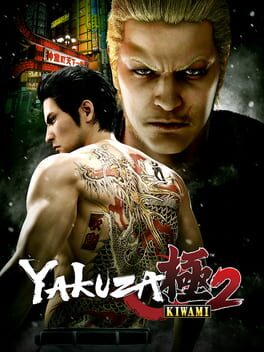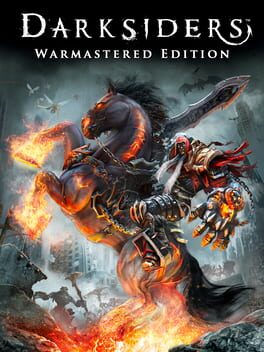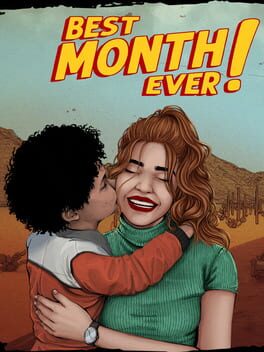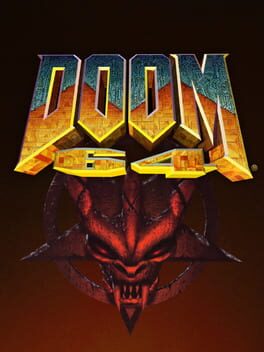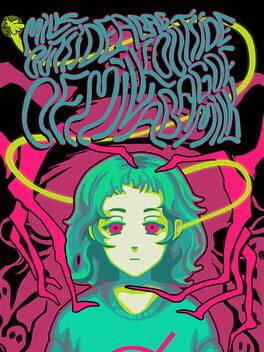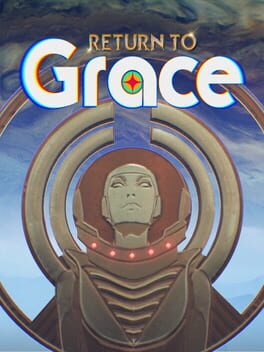cowboyjosh
BACKER
I was 22 when I had my first psychotic episode. I had dropped everything and moved to Austin with a girlfriend who was not a good fit for me, pursuing my dream of (somehow) becoming a professional actor. None of this was going well; the relationship and the jobs I was working were all dead ends that I wasn't really acknowledging or dealing with.
Eventually all the stress and self-deceit came to a head in a giant fight, and I started thinking things that were decidedly false. I came to believe that I was the center of a conspiracy of surveillance, Truman Show style, that was being run by my friends. Every detail that I noticed confirmed this: I saw a car make a weird U-turn which to me was proof positive that it was following me. A dump truck passed the window with a flashing yellow light; this was clearly someone trying to signal to me that they were in on the conspiracy. A cat sitting on the hood of a car must have been some kind of sophisticated spy camera.
I never experienced hallucinations, I was never violent and I didn't cackle maniacally like every single clueless, no-effort depiction of mental illness in Hollywood and elsewhere. The only thing that was missing was my capacity to critically examine my own ideas.
You know how when you're thinking super hard about something for a long time, and you finally figure it out, and you get that big rush of endorphins like "ahhhhh I finally got it." It's a great feeling, but you have to work to get there right? You have to come up with and reject a lot of ideas before you find the one that fits. Well, I was having that "ahhhh" feeling with every fleeting notion. You don't realize how many thoughts you reject as nonsense until you lose the ability to do so.
You might see a squirrel run toward you and think "Wouldn't it be cool if that was some kind of little robot?" then immediately reject that idea without a second thought. That rejection is what was broken in me; even the most momentary flight of fancy became the unassailable truth. I saw the squirrel and it was self-evident that it was being remotely-controlled as a way to keep tabs on me. Not a single thought in my mind that any of this stuff was wrong.
Public mental health facilities in Texas at the turn of millennium were about as you'd expect. I was there involuntarily and kept trying to escape, so I spent a lot of the first few days restrained (more than 20 years later I still get a panicky feeling in my chest when I think about being strapped to that bed). I was shot up with Haldol that left me a drooling, twitching mess. At no point did I receive anything resembling therapy. After a few weeks the doctor assigned to my case finally came back from vacation and I seemed fine so they basically shrugged and let me go.
"Depression with psychotic features" they called it that first time. Eventually, after experiencing more episodes and being institutionalized and re-diagnosed a few more times, they settled on the diagnosis of Bipolar I disorder and I've been stable on lithium for over a decade now. I was lucky and got basically the happiest possible outcome. I don't think that's the case for most people dealing with mental health issues, especially psychosis.
Mental health is like sexuality, in that we as a society are obsessed with it but only seem to engage with it in the most unhealthy ways. In our entertainment media, references to insanity are constant. Calling someone's sanity into question is an easy and common insult. After every mass shooting, the airwaves are crammed with politicians scapegoating the mentally ill. We're finally to the point where (in some circles) it's considered unacceptable to use "gay" or "retarded" as insults, but nobody bats an eye if you call someone "crazy" or "psycho".
But for all of that, it's basically unheard of for someone in power to say anything meaningful about mental health. When Hollywood approaches the topic, the results are universally rancid. Games tend to fall into two camps: crazy-person-as-horror-villain studio hack jobs, or autobiographical indies that actually bring some experience to the picture.
And that's why Hellblade stands out so much to me. It's not an indie; it has the full weight of a storied and talented (albeit small) studio behind it. But they've done the work to actually try to depict psychosis in a realistic way, that brings the player into the experience as an exercise in empathy, not just a cheap aesthetic choice.
It was a marvel to me how the puzzles in the game are built around seeing patterns that aren't really there, exactly like I did during my psychotic episodes. The scene where all the trees have eyes, but they're really just tricks of the light, was so incredibly true to my experience. I never saw things that weren't there; I saw things that were there but misinterpreted them in critical ways, just like Senua.
And Senua? Possibly my favorite protagonist of any game. Melina Jeurgens gives it so much of herself, and her character design is such a breath of fresh air in an industry full of gross fan service. She looks like a real person! She's still pretty, but doesn't look like a RealDoll that someone dressed up in cosplay gear.
I could only play this game in short sessions because it's so damn intense. The story hits hard, and Senua's agonizing deaths were challenging. Mechanically, the game is really quite light. Only a couple gameplay verbs are made available as the story progresses very linearly. Hellblade aims to challenge the player on a sensory, emotional and intellectual level more than a gameplay one. For me, it was deeply effective and affecting.
With the sequel on the horizon it's exciting to imagine what Ninja Theory has in store for us next. It really feels like the conversation around mental health is starting to turn; the crazies are finally out telling their stories, taboos and misinformation be damned. I love how indie developers have stepped up and started raising the level of discourse around mental health and I really hope that more and bigger studios follow suit. Fear of retaliation or judgment can make mental illness a really isolating experience. It really does feel good to feel seen, and playing a game like Hellblade is really great reminder that I'm not alone.
Eventually all the stress and self-deceit came to a head in a giant fight, and I started thinking things that were decidedly false. I came to believe that I was the center of a conspiracy of surveillance, Truman Show style, that was being run by my friends. Every detail that I noticed confirmed this: I saw a car make a weird U-turn which to me was proof positive that it was following me. A dump truck passed the window with a flashing yellow light; this was clearly someone trying to signal to me that they were in on the conspiracy. A cat sitting on the hood of a car must have been some kind of sophisticated spy camera.
I never experienced hallucinations, I was never violent and I didn't cackle maniacally like every single clueless, no-effort depiction of mental illness in Hollywood and elsewhere. The only thing that was missing was my capacity to critically examine my own ideas.
You know how when you're thinking super hard about something for a long time, and you finally figure it out, and you get that big rush of endorphins like "ahhhhh I finally got it." It's a great feeling, but you have to work to get there right? You have to come up with and reject a lot of ideas before you find the one that fits. Well, I was having that "ahhhh" feeling with every fleeting notion. You don't realize how many thoughts you reject as nonsense until you lose the ability to do so.
You might see a squirrel run toward you and think "Wouldn't it be cool if that was some kind of little robot?" then immediately reject that idea without a second thought. That rejection is what was broken in me; even the most momentary flight of fancy became the unassailable truth. I saw the squirrel and it was self-evident that it was being remotely-controlled as a way to keep tabs on me. Not a single thought in my mind that any of this stuff was wrong.
Public mental health facilities in Texas at the turn of millennium were about as you'd expect. I was there involuntarily and kept trying to escape, so I spent a lot of the first few days restrained (more than 20 years later I still get a panicky feeling in my chest when I think about being strapped to that bed). I was shot up with Haldol that left me a drooling, twitching mess. At no point did I receive anything resembling therapy. After a few weeks the doctor assigned to my case finally came back from vacation and I seemed fine so they basically shrugged and let me go.
"Depression with psychotic features" they called it that first time. Eventually, after experiencing more episodes and being institutionalized and re-diagnosed a few more times, they settled on the diagnosis of Bipolar I disorder and I've been stable on lithium for over a decade now. I was lucky and got basically the happiest possible outcome. I don't think that's the case for most people dealing with mental health issues, especially psychosis.
Mental health is like sexuality, in that we as a society are obsessed with it but only seem to engage with it in the most unhealthy ways. In our entertainment media, references to insanity are constant. Calling someone's sanity into question is an easy and common insult. After every mass shooting, the airwaves are crammed with politicians scapegoating the mentally ill. We're finally to the point where (in some circles) it's considered unacceptable to use "gay" or "retarded" as insults, but nobody bats an eye if you call someone "crazy" or "psycho".
But for all of that, it's basically unheard of for someone in power to say anything meaningful about mental health. When Hollywood approaches the topic, the results are universally rancid. Games tend to fall into two camps: crazy-person-as-horror-villain studio hack jobs, or autobiographical indies that actually bring some experience to the picture.
And that's why Hellblade stands out so much to me. It's not an indie; it has the full weight of a storied and talented (albeit small) studio behind it. But they've done the work to actually try to depict psychosis in a realistic way, that brings the player into the experience as an exercise in empathy, not just a cheap aesthetic choice.
It was a marvel to me how the puzzles in the game are built around seeing patterns that aren't really there, exactly like I did during my psychotic episodes. The scene where all the trees have eyes, but they're really just tricks of the light, was so incredibly true to my experience. I never saw things that weren't there; I saw things that were there but misinterpreted them in critical ways, just like Senua.
And Senua? Possibly my favorite protagonist of any game. Melina Jeurgens gives it so much of herself, and her character design is such a breath of fresh air in an industry full of gross fan service. She looks like a real person! She's still pretty, but doesn't look like a RealDoll that someone dressed up in cosplay gear.
I could only play this game in short sessions because it's so damn intense. The story hits hard, and Senua's agonizing deaths were challenging. Mechanically, the game is really quite light. Only a couple gameplay verbs are made available as the story progresses very linearly. Hellblade aims to challenge the player on a sensory, emotional and intellectual level more than a gameplay one. For me, it was deeply effective and affecting.
With the sequel on the horizon it's exciting to imagine what Ninja Theory has in store for us next. It really feels like the conversation around mental health is starting to turn; the crazies are finally out telling their stories, taboos and misinformation be damned. I love how indie developers have stepped up and started raising the level of discourse around mental health and I really hope that more and bigger studios follow suit. Fear of retaliation or judgment can make mental illness a really isolating experience. It really does feel good to feel seen, and playing a game like Hellblade is really great reminder that I'm not alone.
1999
I loved this; I think it's my favorite PS1 game so far. It's the first time I've finished a game and thought "Yes! THAT was worth buying a PS3 for!"
I found it surprisingly scary. The sound design in particular was incredible; I was recently impressed by the soundscapes in Doom 3 and I feel like that pulled a lot from this. Just a huge range of atmospheres from unsettling to outright panic-inducing. It blended so well with the cold rusty aesthetic of the graphics which, again, wow.
What really stood out to me throughout Silent Hill was how well they made the system's limitations work for them. Low resolution, polygon count and draw distance would be a fetter to a lesser team, but this game leans into them as strong artistic choices that end up being the pillars of the game's aesthetic.
The whole game is a testament to the Jaws thing: the scariest things are unknown. The graphics, sound and plot all use ambiguity and limited information in the best ways possible. Even with the stilted acting and muddy graphics I was glued to the screen every cutscene trying to soak in any scrap of information to understand what was happening to Harry. Understanding would give me power, but this is the kind of game that withholds more power than it gives and it constantly kept me wanting more.
My favorite TV show of all time is Lost. I love how the plot is doled out in tantalizing chunks, each a degree weirder than the last. I felt that same drip-feed of "Wait what?!" moments playing Silent Hill.
In addition to loving the creative choices, I was also really impressed with the technical presentation. The camera in particular seems ahead of its time. Third person cameras even today struggle in small interior spaces and I was kinda blown away by how they were able to split the difference between a curated experience and full player control. I felt like I could always see what I needed to see, and I was hardly ever fighting the camera.
It's actually kind of funny to see how much of Sony's first party formula is all right here. Cinematic presentation, over-the-shoulder camera, wide linear world design with open segments, ranged/melee action, in-engine cutscenes, sad dad... hell this game might as well be Last of Us Part 0.
I think the game's biggest weakness is its boss fights. I had to retry each one of these a bunch of times which really drained a lot of the momentum and tension. It would be different if it weren't so clunky to control, or the fights were designed around that clunkiness. But it felt like they required a level of dexterity that was hard to achieve, then wouldn't be needed again until the next fight.
I'm not really holding that against it, though, because they always gave you a nice checkpoint and they were good pace breaks. Considering you spend 90% of the game running around and like 5% of it in boss fights, it's probably a good thing that the running around is the best part. Being scared of what's behind you, dreading what's ahead of you, piecing together clues while a horrible sound plays at an uncomfortable volume is where the game is at its peak.
Silent Hill is in such an intriguing position historically; it feels like it sits on a little sliver of the Venn diagram between 20th and 21st century design. You've got these forward-thinking, gorgeous lo-fi 3D environments that are filled with old-school touches like giving each little cabinet and desk its own text description. It really feels unique and special and I'm really glad for my time with it.
I found it surprisingly scary. The sound design in particular was incredible; I was recently impressed by the soundscapes in Doom 3 and I feel like that pulled a lot from this. Just a huge range of atmospheres from unsettling to outright panic-inducing. It blended so well with the cold rusty aesthetic of the graphics which, again, wow.
What really stood out to me throughout Silent Hill was how well they made the system's limitations work for them. Low resolution, polygon count and draw distance would be a fetter to a lesser team, but this game leans into them as strong artistic choices that end up being the pillars of the game's aesthetic.
The whole game is a testament to the Jaws thing: the scariest things are unknown. The graphics, sound and plot all use ambiguity and limited information in the best ways possible. Even with the stilted acting and muddy graphics I was glued to the screen every cutscene trying to soak in any scrap of information to understand what was happening to Harry. Understanding would give me power, but this is the kind of game that withholds more power than it gives and it constantly kept me wanting more.
My favorite TV show of all time is Lost. I love how the plot is doled out in tantalizing chunks, each a degree weirder than the last. I felt that same drip-feed of "Wait what?!" moments playing Silent Hill.
In addition to loving the creative choices, I was also really impressed with the technical presentation. The camera in particular seems ahead of its time. Third person cameras even today struggle in small interior spaces and I was kinda blown away by how they were able to split the difference between a curated experience and full player control. I felt like I could always see what I needed to see, and I was hardly ever fighting the camera.
It's actually kind of funny to see how much of Sony's first party formula is all right here. Cinematic presentation, over-the-shoulder camera, wide linear world design with open segments, ranged/melee action, in-engine cutscenes, sad dad... hell this game might as well be Last of Us Part 0.
I think the game's biggest weakness is its boss fights. I had to retry each one of these a bunch of times which really drained a lot of the momentum and tension. It would be different if it weren't so clunky to control, or the fights were designed around that clunkiness. But it felt like they required a level of dexterity that was hard to achieve, then wouldn't be needed again until the next fight.
I'm not really holding that against it, though, because they always gave you a nice checkpoint and they were good pace breaks. Considering you spend 90% of the game running around and like 5% of it in boss fights, it's probably a good thing that the running around is the best part. Being scared of what's behind you, dreading what's ahead of you, piecing together clues while a horrible sound plays at an uncomfortable volume is where the game is at its peak.
Silent Hill is in such an intriguing position historically; it feels like it sits on a little sliver of the Venn diagram between 20th and 21st century design. You've got these forward-thinking, gorgeous lo-fi 3D environments that are filled with old-school touches like giving each little cabinet and desk its own text description. It really feels unique and special and I'm really glad for my time with it.
2023
To be fair, I did not play this very long. I was expecting it to be extremely corporate and predatory, which it is. What I did not expect was for it to be very poorly made, which it also is. It crashed within the first 30 minutes. Character models are unreadable, homogenous blobs. Action animations look incredibly stiff and artificial. Environments are drab gray smears. The cutscenes... oh my god the cutscenes are SO UNBELIEVABLY SLOW. The characters are so torpid they make Geralt of Riviera look like Sonic the Hedgehog. It's like they inserted a 5 second pause before every line to give it dramatic weight. The actual result is that this action game simply has no energy; the whole thing seems like it's on the verge of a heroin overdose. Combine that with all the on-screen movement consisting of these blobby characters shuffling randomly back and forth, and the writing and voice acting being bottom of the barrel bad, and this whole package looks incredibly amateurish.
Making this some kind of MMO is a weird choice too. What is gained by taking away my ability to pause the game? How is my experience enhanced by seeing "xXxHOTBABESLAYERxXx" running in circles around my armor vendor? Maybe it's just a nod to Sartre; hell really is other people.
I don’t think it's too much of a stretch to say that Diablo invented the loot box. You kill a monster and something might pop out; it might be incredible or it might be total trash. When such tension was novel it was exciting and addictive. Now every live service game has embraced this mechanic as a means of padding out a game's playtime. A regular playthrough of Dark Souls might see you walk away with, what, 30 or 40 cool weapons? A playthrough of any given Diablo, though, will have you looting literally thousands of weapons, each with a minuscule chance of being cool. One of these models perfectly slots into a live service game's carefully calibrated withholding of joy. Too little and you get frustrated, too much and you get bored and/or consume the content too quickly. With the "Shop" tab prominently on display in the main menu, this feels less like a game and more like a mail-order catalog.
I guess what I'm getting at is that I have enjoyed these games in the past, but this really does feel like Diablo in its inevitable final form: a corporate IP with no soul, fashioned into a treadmill of monetizable nonsense (like $65 mounts!). Content mash, to be drip fed forever.
Making this some kind of MMO is a weird choice too. What is gained by taking away my ability to pause the game? How is my experience enhanced by seeing "xXxHOTBABESLAYERxXx" running in circles around my armor vendor? Maybe it's just a nod to Sartre; hell really is other people.
I don’t think it's too much of a stretch to say that Diablo invented the loot box. You kill a monster and something might pop out; it might be incredible or it might be total trash. When such tension was novel it was exciting and addictive. Now every live service game has embraced this mechanic as a means of padding out a game's playtime. A regular playthrough of Dark Souls might see you walk away with, what, 30 or 40 cool weapons? A playthrough of any given Diablo, though, will have you looting literally thousands of weapons, each with a minuscule chance of being cool. One of these models perfectly slots into a live service game's carefully calibrated withholding of joy. Too little and you get frustrated, too much and you get bored and/or consume the content too quickly. With the "Shop" tab prominently on display in the main menu, this feels less like a game and more like a mail-order catalog.
I guess what I'm getting at is that I have enjoyed these games in the past, but this really does feel like Diablo in its inevitable final form: a corporate IP with no soul, fashioned into a treadmill of monetizable nonsense (like $65 mounts!). Content mash, to be drip fed forever.
What a hoot! For me, a child of the 80s, the Turtles were a symbol of budding maturity, poking through the eggshell of more childish fare and squinting into the bright light of “young adult” programming. Before Turtles I was into Belle and Sebastian and David the Gnome. After, it was all Captain Power and You Can't Do That on Television. The Turtles felt subversive at the time; they used weird slang, they had an attitude and they were gross teenagers who lived in the sewer.
It was a big tonal contrast with the Filmation and Hanna-Barbara tripe that was all over Saturday mornings at the time… and of course the rest is history. The Turtles were everywhere, and even as a kid who was generally clueless about pop culture, it penetrated my bubble and was a big part of my childhood. I wasn’t nearly cool enough to have been ahead of the curve with the comics, but I watched the show, played with the action figures the show was a commercial for, and eventually even saw the movie in the theater (I was really taken aback by the cuss words). It probably had a bigger cultural impact than anything else that I’ve been super into when it was current.
But until picking this game up, I never thought about the Turtles as an adult. So it’s like my nostalgia has been perfectly preserved, NIB, just waiting for something to crack it open. And this game sure did that! Like a laser guided nostalgia bomb right to the heart… Hmm a violence metaphor doesn’t feel right. It’s more like a custom-tailored multi-headed nostalgia dildo that perfectly tickles all the right memories.
Every new villain that popped up had me going “oh yeah THAT guy!” The colors were great, the characters are all nice and distinct, and best of all it was just a robust, great-feeling beat-em-up moveset. Pun intended: It just feels punchy. Dodge roll, yes please; sprint, must have; double jump!? Is it my birthday? My ninth birthday?!
Obviously I’m completely incapable of rendering a verdict on this game on account of how it has won my heart with its gift of precious forgotten memories. I will say I didn’t care for some of the voices, but what they lacked in gravitas they made up for in enthusiasm, and honestly that’s really about all the criticism I can muster. This was clearly made by masters of their craft with a strong love for the source material.
They say the act of remembering is actually a creative process; that each time you recall a memory you change it a bit. That the most intact memories are the ones that have been least frequently accessed. This is a game I’ll definitely be coming back to. But, maybe, not too often.
It was a big tonal contrast with the Filmation and Hanna-Barbara tripe that was all over Saturday mornings at the time… and of course the rest is history. The Turtles were everywhere, and even as a kid who was generally clueless about pop culture, it penetrated my bubble and was a big part of my childhood. I wasn’t nearly cool enough to have been ahead of the curve with the comics, but I watched the show, played with the action figures the show was a commercial for, and eventually even saw the movie in the theater (I was really taken aback by the cuss words). It probably had a bigger cultural impact than anything else that I’ve been super into when it was current.
But until picking this game up, I never thought about the Turtles as an adult. So it’s like my nostalgia has been perfectly preserved, NIB, just waiting for something to crack it open. And this game sure did that! Like a laser guided nostalgia bomb right to the heart… Hmm a violence metaphor doesn’t feel right. It’s more like a custom-tailored multi-headed nostalgia dildo that perfectly tickles all the right memories.
Every new villain that popped up had me going “oh yeah THAT guy!” The colors were great, the characters are all nice and distinct, and best of all it was just a robust, great-feeling beat-em-up moveset. Pun intended: It just feels punchy. Dodge roll, yes please; sprint, must have; double jump!? Is it my birthday? My ninth birthday?!
Obviously I’m completely incapable of rendering a verdict on this game on account of how it has won my heart with its gift of precious forgotten memories. I will say I didn’t care for some of the voices, but what they lacked in gravitas they made up for in enthusiasm, and honestly that’s really about all the criticism I can muster. This was clearly made by masters of their craft with a strong love for the source material.
They say the act of remembering is actually a creative process; that each time you recall a memory you change it a bit. That the most intact memories are the ones that have been least frequently accessed. This is a game I’ll definitely be coming back to. But, maybe, not too often.
2020
Loved it! The unique and memorable characters, plot twists doled put in tantalizing chunks, and oh my god that delicious lore!
The gameplay here is extremely basic, just simple first person exploration, collection, and light puzzles and platforming. You can’t even die. But this was a world I never stopped wanting to know more about. Smart writing, colorful artwork and a jazzy original soundtrack wrap this game up into a relaxing but engrossing package that’s hard to put down.
The gameplay here is extremely basic, just simple first person exploration, collection, and light puzzles and platforming. You can’t even die. But this was a world I never stopped wanting to know more about. Smart writing, colorful artwork and a jazzy original soundtrack wrap this game up into a relaxing but engrossing package that’s hard to put down.
2020
Holy crap I finally beat this incredible game! That last stage took months! It had become a sort of ritual; once or twice a week I’d fire up Streets of Rage 4 and make another ill-fated attempt at stage 12 before bed. I knew I had it in me to do it without handicaps so I just kept poking at it over and over until I finally broke through with Shiva of all characters; literally my first time playing him. All the other stages I beat with Cherry; I loved jumping on guys’ shoulders and punching them in the face.
Coming off of Shredder’s Revenge, which had a lot more mobility options, Streets of Rage characters can feel a little stiff and heavy, but I found this eventually grew on me. It gave the combat a more methodical, deliberate feel that I grew to appreciate. Once I started using the back attack regularly, I felt like I was finally in the Streets of Rage zone again.
The tight controls, bright colors and faithfulness to the series style and gameplay make this an amazing sequel and just what I want out of a modern beat ‘em up. I’m definitely going to keep coming back to this one.
Coming off of Shredder’s Revenge, which had a lot more mobility options, Streets of Rage characters can feel a little stiff and heavy, but I found this eventually grew on me. It gave the combat a more methodical, deliberate feel that I grew to appreciate. Once I started using the back attack regularly, I felt like I was finally in the Streets of Rage zone again.
The tight controls, bright colors and faithfulness to the series style and gameplay make this an amazing sequel and just what I want out of a modern beat ‘em up. I’m definitely going to keep coming back to this one.
2017
It was cute I really liked the writing and the art. The gameplay was pretty slow and repetitive in parts, but the characters won me over and got me rooting for everyone pretty quickly. Also quite a fun game within a game.
2012
I was really having fun with this. It's set up like a TV show; broken into episodes complete with recaps and previews and credits for each chapter. It's a lot of fun, over the top nonsense, like a guy punching a guy so hard it breaks the entire planet in half. Even though it has a lot of QTE-laden cutscenes I was really enjoying the wild characters and art style.
Uuuuuuntil chapter 10. In this scene, apropos of nothing, our hero visits some sort of hot springs resort. There the player is treated to a first-person interactive scene in which he first spends time ogling the staff, then moves quickly on to exposing himself, before finally just straight up sexually assaulting a service worker. But don't worry, because it's all played for laughs! Technically it's only an attempted assault, because he's comically punched by his father figure as a "Denied!" achievement pops.
I just don't know. This is so normalized I couldn't even find mention of it in any reviews. The IGN review, written by a woman, specifically mentions the scene but carefully leaves out the attempted assault. Instead it's described as "the objective is to stop Asura from staring for too long at the generous assets of a hot-springs attendant" which as far as I can tell is completely false; you cannot progress in the game until you've gone through the whole menu of sex pest behaviors.
Like I didn't just fall off the fucking redneck truck I know women have always had it bad. But the misogyny in some of these Japanese games in particular feels almost compulsory. It's like there's some regulatory body that comes through and is like, "You allowed the player to go 5 hours without being horrible in some fucked up regressive way to a woman. Back to the drawing board!" From my many minutes of googling about it I know everything about how shitty it is to be a woman in Japan. Obviously nothing I do is going to change any of that, I just wish we as gamers were, like, slightly less inured to it.
Anyway, in Chapter 9, you're a badass demigod going through a wild narrative. In Chapter 11, you're a badass demigod going through a wild narrative, and for no particular reason, a hilarious wannabe rapist! Somehow the experience lost its luster once I realized I was playing as Donald Trump's self-image.
Uuuuuuntil chapter 10. In this scene, apropos of nothing, our hero visits some sort of hot springs resort. There the player is treated to a first-person interactive scene in which he first spends time ogling the staff, then moves quickly on to exposing himself, before finally just straight up sexually assaulting a service worker. But don't worry, because it's all played for laughs! Technically it's only an attempted assault, because he's comically punched by his father figure as a "Denied!" achievement pops.
I just don't know. This is so normalized I couldn't even find mention of it in any reviews. The IGN review, written by a woman, specifically mentions the scene but carefully leaves out the attempted assault. Instead it's described as "the objective is to stop Asura from staring for too long at the generous assets of a hot-springs attendant" which as far as I can tell is completely false; you cannot progress in the game until you've gone through the whole menu of sex pest behaviors.
Like I didn't just fall off the fucking redneck truck I know women have always had it bad. But the misogyny in some of these Japanese games in particular feels almost compulsory. It's like there's some regulatory body that comes through and is like, "You allowed the player to go 5 hours without being horrible in some fucked up regressive way to a woman. Back to the drawing board!" From my many minutes of googling about it I know everything about how shitty it is to be a woman in Japan. Obviously nothing I do is going to change any of that, I just wish we as gamers were, like, slightly less inured to it.
Anyway, in Chapter 9, you're a badass demigod going through a wild narrative. In Chapter 11, you're a badass demigod going through a wild narrative, and for no particular reason, a hilarious wannabe rapist! Somehow the experience lost its luster once I realized I was playing as Donald Trump's self-image.
2017
This review contains spoilers
I think I liked this one more than Kiwami 1. I don't know if it was just because I had some familiarity with the main cast to ground me, but I was able to follow the plot of this one a lot better and keep track of the twists and turns (more or less).
This time I threw myself fully into the main two side activities, of which I liked Cabaret Club Grand Prix way more. The Clan Creator weird RTS-like minigame just didn't seem fleshed out enough; I didn't find it very fun at all. Fortunately Cabaret Club was super addictive. Initially, I didn't really understand the activity, and found it a little uncomfortable because it seemed a little bit like low-key pimping. But the more I learned about host clubs, the less skeezy it felt. It helped that across the board, every single woman that you recruit gives their explicit and enthusiastic consent, and the story shows that the success of the club is a positive influence in the workers' lives.
My initial hesitation about the activity didn't come out of nowhere, though. My understanding of Tokyo culture is essentially zero. This game is full of references, parodies and homages to media that have never crossed my radar. There is so much context I'm missing that I wouldn't even know how to analyze what's in here. But I do know how it makes me feel, and when it comes to this game's treatment of women my feelings range from concern to nausea.
The women at the margins of the game seem to get the worst of it. I've never felt grosser playing a game than the photography model minigame. I'm not a prude about sex work, but the fact that sex is never explicitly mentioned just makes it seem so much skeevier. If Kiryu would just say, "I like your breasts, will you show them to me" or "Your body looks great, here's a nice tip" or "Are you a victim of sex trafficking and would you like me to call the authorities" it would feel so much less icky. Instead, we're stuck in the zone of PG-13 entendre and it's just so unbelievably uncomfortable.
The whole game is like this. It's like they figured since they can't show actual nudity, they have to fixate on the boundary of what they can show. The women in the main and supporting cast get it too. Every woman in the main cast has her sexuality pointlessly dragged in as a plot point. When the game introduced a female cop I was optimistic at first, but then the first thing she tells you to do after taking you into custody is buy her underwear. It's a fetch quest; you have to actually go to the store and purchase an item called "ladies underwear" that has a little icon showing a bra and panties, and then bring it back. To the cop in charge of your case. It's like the whole thing is infused with the essence of a hormonal 12-year-old boy.
The absolute lowest point of the game, though, involves my old bestie Haruka. She's back, and just as bright and fun as ever. Also, I have to guess, unimaginably traumatized. She's been kidnapped so many times and witnessed so many murders at this point I really worry for her emotional health. That's why we did everything she wanted during the part of the game where I got to just hang out with her. It's also why I was absolutely horrified, mouth agape, when I realized the game was railroading me into literally selling her to a shady movie producer, into a life of debt and hardship, against her explicit wishes! Haruka saw through the guy right away; she said "Mister, who are you and what are you trying to get from me?" Smart as a whip; I love Haruka. Then Kiryu goes completely behind her back and makes the absolute worst decision I've seen anyone make in two of these longass games full of people making terrible decisions. Of course it was a setup for Haruka to tell Kiryu off and set him straight, but wow did it really make me hate Kiryu so much it kinda pushed me out of the game for a while.
I really liked Ryuji. I hope the series continues to have more charismatic villains like him. He wasn't, like, an absolute raving lunatic (like the real villains turned out to be), he had a little class, a little restraint. I felt like all the villains and other supporting cast were a lot more distinct and memorable this time around and that helped me keep a lot of momentum going on the story, which is usually the hardest part of any game for me to connect with. I'm very much a mechanics and "gameplay"-focused gamer, and found Kiwami 2's to be largely satisfying.
Combat felt a lot flatter than in Kiwami 1, but also I felt like I had more useful tools at my disposal. That is, after some upgrades. I'm a big fan of progression as a general thing; start me off as a weakling with nothing and give me a thousand little presents as I climb the ladder please. But in Kiwami 2 I felt like Kiryu might be just a little too handicapped out the gate. There were some abilities, like dodge cancel, that are such game changers that it felt rude to let me go so long (especially that first boss fight, ugh) without those basics. Once I got powered up the combat started feeling a lot better, but never really gained any depth. It's kind of disappointing that the combat in such a late entry to a combat-focused series isn't, like, amazing? I'll be very interested to see how 3 plays (unless I play 0 next) because I'm guessing it's going to be a step backward which would be a real bummer. All that said it did keep me entertained; I never got sick of going to the colosseum and beating down a bunch of weirdos.
In summary:
+ Ryuji was great, more of that please
+ Haruka was amazing as always but I don't trust this series to take care of her; I'm a little terrified of what happens to her next
+ Cabaret Club is incredibly addictive, this was my Pocket Circuit for this game. It helps if you do all the substories, and if you just kind of pretend feminism isn't a thing.
+ Just walking around Kamurocho and Sotenbori with Haruka, holding hands and looking at the lights
- Just please, for fucks sake stop being shitty about women. I have a feeling this is going to be consistent throughout the series but hope springs eternal right
- I needed a way to tone down the random encounters; these were a real drag especially when I was trying to have special time with my girl
- Clan Creator seemed super undercooked
- I really don't understand Majima. I have to play 0.
This time I threw myself fully into the main two side activities, of which I liked Cabaret Club Grand Prix way more. The Clan Creator weird RTS-like minigame just didn't seem fleshed out enough; I didn't find it very fun at all. Fortunately Cabaret Club was super addictive. Initially, I didn't really understand the activity, and found it a little uncomfortable because it seemed a little bit like low-key pimping. But the more I learned about host clubs, the less skeezy it felt. It helped that across the board, every single woman that you recruit gives their explicit and enthusiastic consent, and the story shows that the success of the club is a positive influence in the workers' lives.
My initial hesitation about the activity didn't come out of nowhere, though. My understanding of Tokyo culture is essentially zero. This game is full of references, parodies and homages to media that have never crossed my radar. There is so much context I'm missing that I wouldn't even know how to analyze what's in here. But I do know how it makes me feel, and when it comes to this game's treatment of women my feelings range from concern to nausea.
The women at the margins of the game seem to get the worst of it. I've never felt grosser playing a game than the photography model minigame. I'm not a prude about sex work, but the fact that sex is never explicitly mentioned just makes it seem so much skeevier. If Kiryu would just say, "I like your breasts, will you show them to me" or "Your body looks great, here's a nice tip" or "Are you a victim of sex trafficking and would you like me to call the authorities" it would feel so much less icky. Instead, we're stuck in the zone of PG-13 entendre and it's just so unbelievably uncomfortable.
The whole game is like this. It's like they figured since they can't show actual nudity, they have to fixate on the boundary of what they can show. The women in the main and supporting cast get it too. Every woman in the main cast has her sexuality pointlessly dragged in as a plot point. When the game introduced a female cop I was optimistic at first, but then the first thing she tells you to do after taking you into custody is buy her underwear. It's a fetch quest; you have to actually go to the store and purchase an item called "ladies underwear" that has a little icon showing a bra and panties, and then bring it back. To the cop in charge of your case. It's like the whole thing is infused with the essence of a hormonal 12-year-old boy.
The absolute lowest point of the game, though, involves my old bestie Haruka. She's back, and just as bright and fun as ever. Also, I have to guess, unimaginably traumatized. She's been kidnapped so many times and witnessed so many murders at this point I really worry for her emotional health. That's why we did everything she wanted during the part of the game where I got to just hang out with her. It's also why I was absolutely horrified, mouth agape, when I realized the game was railroading me into literally selling her to a shady movie producer, into a life of debt and hardship, against her explicit wishes! Haruka saw through the guy right away; she said "Mister, who are you and what are you trying to get from me?" Smart as a whip; I love Haruka. Then Kiryu goes completely behind her back and makes the absolute worst decision I've seen anyone make in two of these longass games full of people making terrible decisions. Of course it was a setup for Haruka to tell Kiryu off and set him straight, but wow did it really make me hate Kiryu so much it kinda pushed me out of the game for a while.
I really liked Ryuji. I hope the series continues to have more charismatic villains like him. He wasn't, like, an absolute raving lunatic (like the real villains turned out to be), he had a little class, a little restraint. I felt like all the villains and other supporting cast were a lot more distinct and memorable this time around and that helped me keep a lot of momentum going on the story, which is usually the hardest part of any game for me to connect with. I'm very much a mechanics and "gameplay"-focused gamer, and found Kiwami 2's to be largely satisfying.
Combat felt a lot flatter than in Kiwami 1, but also I felt like I had more useful tools at my disposal. That is, after some upgrades. I'm a big fan of progression as a general thing; start me off as a weakling with nothing and give me a thousand little presents as I climb the ladder please. But in Kiwami 2 I felt like Kiryu might be just a little too handicapped out the gate. There were some abilities, like dodge cancel, that are such game changers that it felt rude to let me go so long (especially that first boss fight, ugh) without those basics. Once I got powered up the combat started feeling a lot better, but never really gained any depth. It's kind of disappointing that the combat in such a late entry to a combat-focused series isn't, like, amazing? I'll be very interested to see how 3 plays (unless I play 0 next) because I'm guessing it's going to be a step backward which would be a real bummer. All that said it did keep me entertained; I never got sick of going to the colosseum and beating down a bunch of weirdos.
In summary:
+ Ryuji was great, more of that please
+ Haruka was amazing as always but I don't trust this series to take care of her; I'm a little terrified of what happens to her next
+ Cabaret Club is incredibly addictive, this was my Pocket Circuit for this game. It helps if you do all the substories, and if you just kind of pretend feminism isn't a thing.
+ Just walking around Kamurocho and Sotenbori with Haruka, holding hands and looking at the lights
- Just please, for fucks sake stop being shitty about women. I have a feeling this is going to be consistent throughout the series but hope springs eternal right
- I needed a way to tone down the random encounters; these were a real drag especially when I was trying to have special time with my girl
- Clan Creator seemed super undercooked
- I really don't understand Majima. I have to play 0.
What do you get when you put together DMC combat, OOT-like world design, weird controls, impenetrable lore and progression systems and a map you can't zoom? A pretty fun little adventure game it turns out.
I always forget Darksiders isn't an Xbox first party franchise; it's just got that look. It feels like it exists in the same world as Killer Instinct and Gears of War. Everyone has massive limbs, sword blades are six inches thick, everything is pointy, and the weapons and environments all have that heavy metal "put a bunch of skulls on it" aesthetic.
I heard a cool interview with a couple of the guys behind this game and basically they had never made anything like it before. This is apparent when you play it, but in both good and bad ways. It's bad because everything needs some more polish and there's a lot of fat that could be trimmed. There are simply way too many mechanics; actually there's really too much of everything. Puzzles always have twice as many steps as it feels like they should and battles tend to outstay their welcome with wave after wave of spongy baddies. The environments are all kind of lackluster, and I think if they were smaller and there were fewer of them, they could have given them a lot more attention.
It's kind of like... you know that new season of Twin Peaks where nobody ever told David Lynch "no"? This is like that; an unfiltered glimpse into the creator's brain because it's hard to imagine much of anything being left on the cutting room floor.
At the same time, it is admirable how committed this game is to its goals. The character action combat feels very nice (although I would have appreciated a couple more moves). The environmental and traversal puzzles are no joke; some of the "guide the beam of light through corridors" puzzles felt like they took over an hour. If that is your bag, Darksiders is 110% ready to fill it. There are a million different character interactions and affordances. I was constantly going "Wow I'm doing this now?"
Mostly due to the terrible maps, there were quite a few times I got hopelessly lost. That, the incredibly long puzzles and the combat tuning were the main points of friction I experienced. When the game was firing on all cylinders, though, I really was having a blast.
Apparently I'm on some kind of Mark Hamill kick; I just finished the Batman game a few days ago and here he is again hamming (Hamill-ing?) it up alongside the fantastic Liam O'Brian of Naruto and Warcraft fame and Phil LaMarr from Futurama and a million other things. Everyone's having a great time and it helped me get past the rougher spots and learn to love the game for what it has to offer.
It's got gusto! And gusto goes a long way with me.
I always forget Darksiders isn't an Xbox first party franchise; it's just got that look. It feels like it exists in the same world as Killer Instinct and Gears of War. Everyone has massive limbs, sword blades are six inches thick, everything is pointy, and the weapons and environments all have that heavy metal "put a bunch of skulls on it" aesthetic.
I heard a cool interview with a couple of the guys behind this game and basically they had never made anything like it before. This is apparent when you play it, but in both good and bad ways. It's bad because everything needs some more polish and there's a lot of fat that could be trimmed. There are simply way too many mechanics; actually there's really too much of everything. Puzzles always have twice as many steps as it feels like they should and battles tend to outstay their welcome with wave after wave of spongy baddies. The environments are all kind of lackluster, and I think if they were smaller and there were fewer of them, they could have given them a lot more attention.
It's kind of like... you know that new season of Twin Peaks where nobody ever told David Lynch "no"? This is like that; an unfiltered glimpse into the creator's brain because it's hard to imagine much of anything being left on the cutting room floor.
At the same time, it is admirable how committed this game is to its goals. The character action combat feels very nice (although I would have appreciated a couple more moves). The environmental and traversal puzzles are no joke; some of the "guide the beam of light through corridors" puzzles felt like they took over an hour. If that is your bag, Darksiders is 110% ready to fill it. There are a million different character interactions and affordances. I was constantly going "Wow I'm doing this now?"
Mostly due to the terrible maps, there were quite a few times I got hopelessly lost. That, the incredibly long puzzles and the combat tuning were the main points of friction I experienced. When the game was firing on all cylinders, though, I really was having a blast.
Apparently I'm on some kind of Mark Hamill kick; I just finished the Batman game a few days ago and here he is again hamming (Hamill-ing?) it up alongside the fantastic Liam O'Brian of Naruto and Warcraft fame and Phil LaMarr from Futurama and a million other things. Everyone's having a great time and it helped me get past the rougher spots and learn to love the game for what it has to offer.
It's got gusto! And gusto goes a long way with me.
2023
2022
I played this as part of my backlog-thinning project. It's been a really great kick in the pants to try some stuff that would otherwise languish.
I finished this in one sitting, which is something I basically never do. It had its hooks in me early. It's low budget enough that you know it's could go anywhere, story-wise, and that kept me interested through the sometimes-stilted dialogue and minimal gameplay segments. This is barely a game; it's as though it's all caught up in telling its story and then remembers "oh, you're here too. Well, have a button to push, I guess." Nevertheless, these moments always seemed to be added thoughtfully and I liked how they gave some tactility to the world.
The story is a relentless barrage of every kind of tragedy and injustice, to the point where it's almost comical. I spent most of the playtime asking myself "Is it earning this?" It pulls out all the stops when it comes to heaviness, and doesn't really examine any of these topics in any depth. But it's not a game about terminal illness, or racism, or poverty; those are just a few of the many dangers in this game's hostile, unpredictable world (and, I might add, the most mundane; I don't want to spoil all the wild shit that goes down in this game). Nor does it seem to be a game about processing trauma and healing, as I kind of expected in the opening hours.
I think this is a game about the big fuzzy line between childhood and adulthood. When playing as the mom most of your gameplay choices focus on the tension between setting a good, principled example for the kid and doing what needs to be done to find some kind of safety for the two of you in the short term. Playing as the kid most of the choices involve how tuned in you are to the things the adults mean but don't say. He wants (and needs) to grow up fast; she wants him to grow up right.
That's the part of it that felt the most relatable. Not directly to my experience, but just the idea that sometimes an unbelievable amount of terrible things happen all at once, and the choices you make as you navigate those moments provide the foundation that you'll build from once the worst has passed.
At the end of the game you get a little wrap-up explaining what kind of adult the kid grows up to be based on your choices. The ending I got was pretty satisfying and it did make me curious to see other forks. The game being so short makes it much more likely for that to happen, but so many heavy topics crammed into a 3 and a half hour game means I probably won't be revisiting it for a while.
That's ok though because this game definitely left an impact. Visually this reminded me of Silent Hill in the way they leveraged the low poly characters and limited environments into a very unique style with some truly beautiful scenes. Because the models are so low fi, there are no close-ups. Everything is shot from a sort of medium distance, giving it a detached, almost voyeuristic quality. The presentation is incredibly simple and sometimes feels like watching a play. The English voice acting is hit or miss, but it seems like a they did a good job prioritizing the important characters on that front so it didn't bother me. For how short and simple of a game this was, it has a huge cast. The localization wasn't always fantastic and there were some weirdly loud foley effects, but at the end of the day the arresting visuals, likable main characters and wild unpredictable story won me over.
I finished this in one sitting, which is something I basically never do. It had its hooks in me early. It's low budget enough that you know it's could go anywhere, story-wise, and that kept me interested through the sometimes-stilted dialogue and minimal gameplay segments. This is barely a game; it's as though it's all caught up in telling its story and then remembers "oh, you're here too. Well, have a button to push, I guess." Nevertheless, these moments always seemed to be added thoughtfully and I liked how they gave some tactility to the world.
The story is a relentless barrage of every kind of tragedy and injustice, to the point where it's almost comical. I spent most of the playtime asking myself "Is it earning this?" It pulls out all the stops when it comes to heaviness, and doesn't really examine any of these topics in any depth. But it's not a game about terminal illness, or racism, or poverty; those are just a few of the many dangers in this game's hostile, unpredictable world (and, I might add, the most mundane; I don't want to spoil all the wild shit that goes down in this game). Nor does it seem to be a game about processing trauma and healing, as I kind of expected in the opening hours.
I think this is a game about the big fuzzy line between childhood and adulthood. When playing as the mom most of your gameplay choices focus on the tension between setting a good, principled example for the kid and doing what needs to be done to find some kind of safety for the two of you in the short term. Playing as the kid most of the choices involve how tuned in you are to the things the adults mean but don't say. He wants (and needs) to grow up fast; she wants him to grow up right.
That's the part of it that felt the most relatable. Not directly to my experience, but just the idea that sometimes an unbelievable amount of terrible things happen all at once, and the choices you make as you navigate those moments provide the foundation that you'll build from once the worst has passed.
At the end of the game you get a little wrap-up explaining what kind of adult the kid grows up to be based on your choices. The ending I got was pretty satisfying and it did make me curious to see other forks. The game being so short makes it much more likely for that to happen, but so many heavy topics crammed into a 3 and a half hour game means I probably won't be revisiting it for a while.
That's ok though because this game definitely left an impact. Visually this reminded me of Silent Hill in the way they leveraged the low poly characters and limited environments into a very unique style with some truly beautiful scenes. Because the models are so low fi, there are no close-ups. Everything is shot from a sort of medium distance, giving it a detached, almost voyeuristic quality. The presentation is incredibly simple and sometimes feels like watching a play. The English voice acting is hit or miss, but it seems like a they did a good job prioritizing the important characters on that front so it didn't bother me. For how short and simple of a game this was, it has a huge cast. The localization wasn't always fantastic and there were some weirdly loud foley effects, but at the end of the day the arresting visuals, likable main characters and wild unpredictable story won me over.
2020
I’m really glad I came back to finish this; I liked it a lot better the second time around. I think this is a really solid entry that carries forward a lot of what made id’s Dooms great while also carving out its own identity.
The level design is really impressive and the music keeps the atmosphere up. The art style never really grew on me, but it definitely fits with the game’s overall aesthetic.
I’m really stoked that this was ported to modern consoles. It’s a hell of a Doom!
The level design is really impressive and the music keeps the atmosphere up. The art style never really grew on me, but it definitely fits with the game’s overall aesthetic.
I’m really stoked that this was ported to modern consoles. It’s a hell of a Doom!
For me this was an extremely relatable story about the complicated relationship we have with our pills. The benefits always have tradeoffs; they make you more normal, but they also change how you think and in my ways who you are. You’re never really sure what you’re putting in your body; you're placing an enormous amount of trust in complete strangers and making yourself both vulnerable and dependent.
I really like this creator’s work; it’s simultaneously cerebral and visceral. It’s validating in the ways it mirrors my experience and elucidating in the ways it doesn’t. I need to get my hands on more of this.
I really like this creator’s work; it’s simultaneously cerebral and visceral. It’s validating in the ways it mirrors my experience and elucidating in the ways it doesn’t. I need to get my hands on more of this.
2023
I thought this was fantastic. A bite sized walking sim with a solid story that reeled me in at just the right pace. It does that narrative thing I really like where they start the story basically in the middle, and the first half is getting caught up with where we even are and what we're doing. To me that makes for really fun storytelling because I like being given small clues and then time to guess at what they might mean. Ended up finishing the whole thing in one sitting!
Gameplay wise this is basically exploration and audio logs and that's it; normally this wouldn't appeal to me but Return to Grace has some fantastic voice acting backed up by strong, memorable characters. These have some obvious influences and there were some other pop culture references sprinkled throughout that I thought were great; they were thematically appropriate and felt like homages.
The slow walking speed is the biggest frustration, but it's kind of understandable since so much of the game is walking and talking that they don't want you blasting past like 3 scripted events while you're still listening to the first recording. But it really puts the damper on exploration and was a huge pain the one time I got turned around.
I can't stress enough what a big deal it is for me that the plot and worldbuilding are what drove me forward in this, because that's not usually what grabs me about games. The ideas presented were all pure, old-school, head-full-of-big-ideas science fiction and I was really impressed with the pacing and execution overall.
I've been to Canada a bunch of times and have friends there, so it warmed my heart to hear so many Canadian voices in one place. I suppose we should say thanks to the taxpayers of Ontario for this one as well, and yeah support the arts guys.
Gameplay wise this is basically exploration and audio logs and that's it; normally this wouldn't appeal to me but Return to Grace has some fantastic voice acting backed up by strong, memorable characters. These have some obvious influences and there were some other pop culture references sprinkled throughout that I thought were great; they were thematically appropriate and felt like homages.
The slow walking speed is the biggest frustration, but it's kind of understandable since so much of the game is walking and talking that they don't want you blasting past like 3 scripted events while you're still listening to the first recording. But it really puts the damper on exploration and was a huge pain the one time I got turned around.
I can't stress enough what a big deal it is for me that the plot and worldbuilding are what drove me forward in this, because that's not usually what grabs me about games. The ideas presented were all pure, old-school, head-full-of-big-ideas science fiction and I was really impressed with the pacing and execution overall.
I've been to Canada a bunch of times and have friends there, so it warmed my heart to hear so many Canadian voices in one place. I suppose we should say thanks to the taxpayers of Ontario for this one as well, and yeah support the arts guys.


